Two trains and are moving with speeds respectively in the same direction on the same stright track, with ahead of . The engines are at the front ends. The engines of train blows a long whistle.
Assume that the sound of the whistle is composed of components varying in frequency from to , asz shown in figure. The spread in the frequency (highest frequency - lowest frequency) is thus . The speed of sound in still air is .
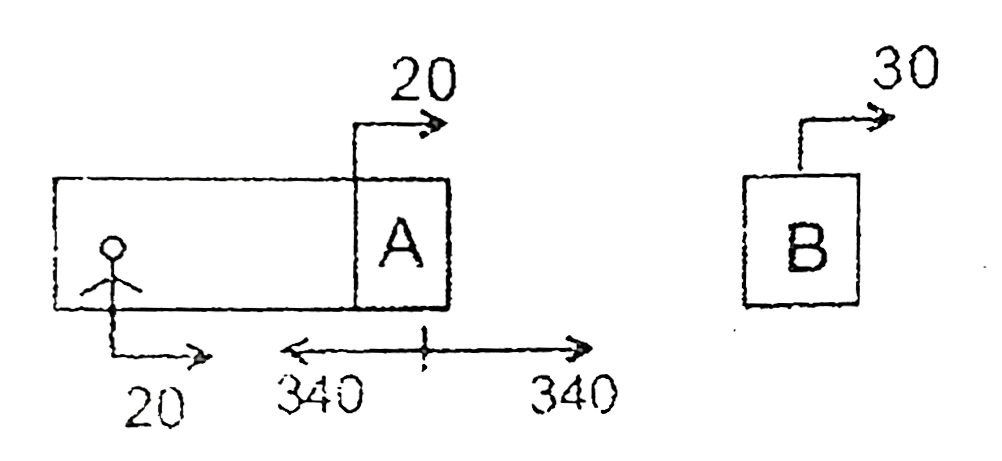
The spred of frequency as observed by the passengers in train is
The correct Answer is:A
As seen from
ltbr>
Topper's Solved these Questions
- SOUND WAVESBOOK - RESONANCECHAPTER - SOUND WAVESEXERCISE - Exercise- 3 PART - II
1 Videos
- SOUND WAVESBOOK - RESONANCECHAPTER - SOUND WAVESEXERCISE - Exercise- 2 PART - IV
8 Videos
- SIMPLE HARMONIC MOTIONBOOK - RESONANCECHAPTER - SIMPLE HARMONIC MOTIONEXERCISE - Exercise
28 Videos
- STRING WAVESBOOK - RESONANCECHAPTER - STRING WAVESEXERCISE - Exercise
32 Videos
Similar Questions
Two trains A and B are moving on parallel tracks in opposite direction at same speed of 30ms–1. Just when the engines of the two trains are about to cross, the engine of train A begins to sound a horn. The sound of the horn is composed of components varying in frequency from 900Hz to 1200 Hz. The speed of sound in air is 330ms–1.
(a) Find the frequency spread (range of frequencies) for the sound heard by a passenger in train A.
(b) Find the frequency spread heard by a passenger in train B.
View SolutionThe engine of a train sound a whistle at frequency v, the frequency heard by a passenger is
View Solution
Knowledge Check
two trains AandB moving with speeds 20m/s and 30m/s respectively in the same direction on the same straight track, with B ahesd of A. The engines are at the front ends. The engine of train A blows a long whistle.
Assume that the sound of the whistle is composed of components varying in frequency from f1=800Hz to f2=1120Hz, as shown in the figure. the spread in the frequency (highest frequency - lowest frequency) is thus 320Hz. the speed of sound in still air is 340m/s.
The spread of frequency as observed by the passenger in train B isA(a) 310HzB(b ) 330HzC( c ) 350HzD(d) 290Hztwo trains AandB moving with speeds 20m/s and 30m/s respectively in the same direction on the same straight track, with B ahesd of A. The engines are at the front ends. The engine of train A blows a long whistle.
Assume that the sound of the whistle is composed of components varying in frequency from f1=800Hz to f2=1120Hz, as shown in the figure. the spread in the frequency (highest frequency - lowest frequency) is thus 320Hz. the speed of sound in still air is 340m/s.
(4) The speed of sound of the whistle isA(a) 340m/s for passengers in A and 310m/s for passengers in BB(b) 360m/s for passengers in A and 310m/s for passengers in BC( c ) 310m/s for passengers in A and 360m/s for passengers in BD(d) 340m/s for passengers in both the trainstwo trains AandB moving with speeds 20m/s and 30m/s respectively in the same direction on the same straight track, with B ahesd of A. The engines are at the front ends. The engine of train A blows a long whistle.
Assume that the sound of the whistle is composed of components varying in frequency from f1=800Hz to f2=1120Hz, as shown in the figure. the spread in the frequency (highest frequency - lowest frequency) is thus 320Hz. the speed of sound in still air is 340m/s.
(5) The distribution of the sound intensity of the whistle as observed by the passengers in train A is best represented byA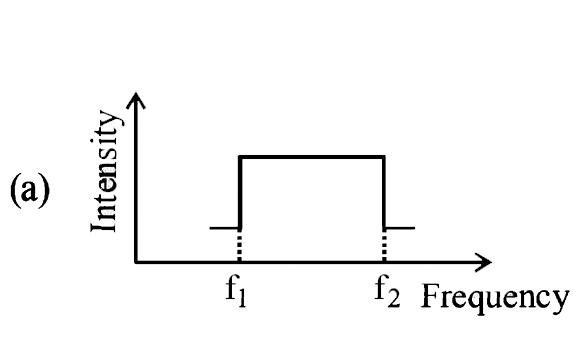 B
B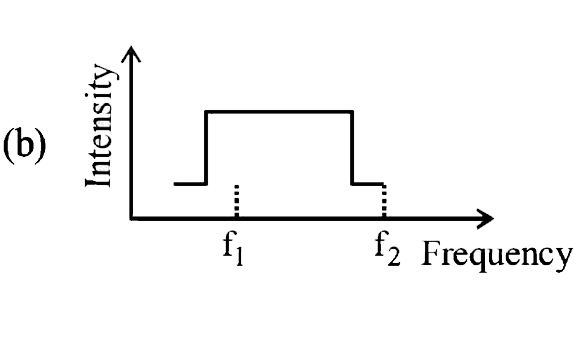 C
C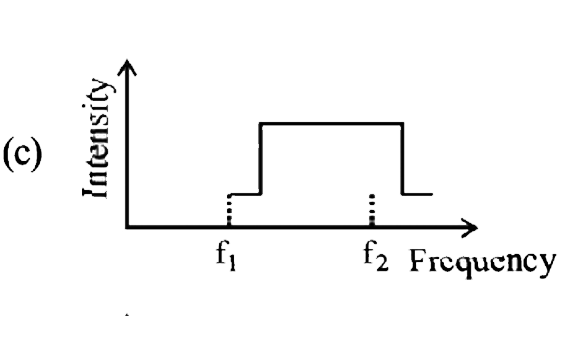 D
D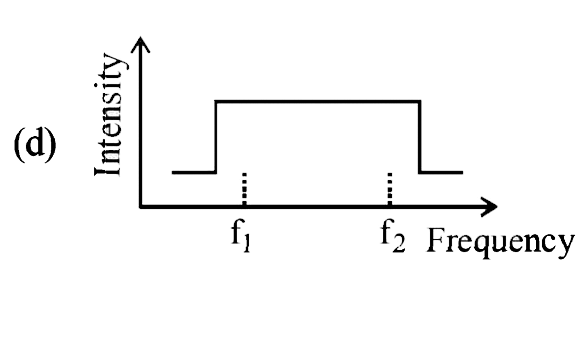
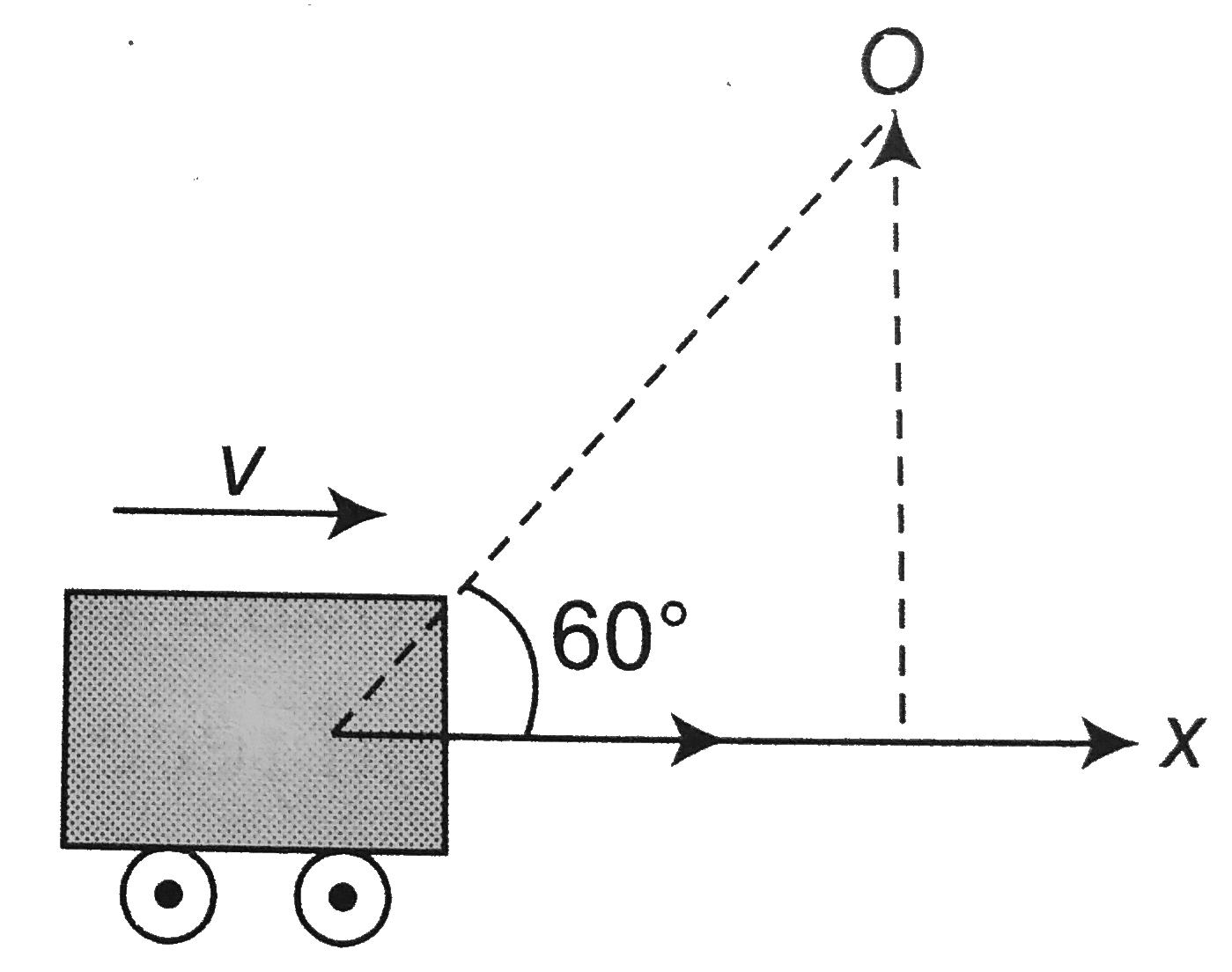
A car is moving along X-axis with a velocity v=20m/s. It sounds a whistle of frequency 660 Hz. If the speed of sound is 340m/s. The apparent frequency heard by the observer O (shown in figure) is:
View SolutionAn automobile moving at 30 m/s is approaching a factory whistle that has a frequency of 500 Hz. If the speed of the sound in air is 340 m/s, then the apparent frequency of the whistle as heard by the driver is
View SolutionA man sitting in a moving train hears the whistle of the engine. The frequency of the whistle is 600 Hz
View SolutionA man standing on a platform observes that the frequency of the sound of a whistle emitted by a train drops by 140 Hz. If the velocity of sound in air is 330 m/s and the speed of the train is 70 m/s, the frequency of the whistle is
View SolutionA man standing on a platform observes that the frequency of the sound of a whistle emitted by a train drops by 140 Hz. If the velocity of sound in air is 330 m/s and the speed of the train is 70 m/s, the frequency of the whistle is
View Solution
